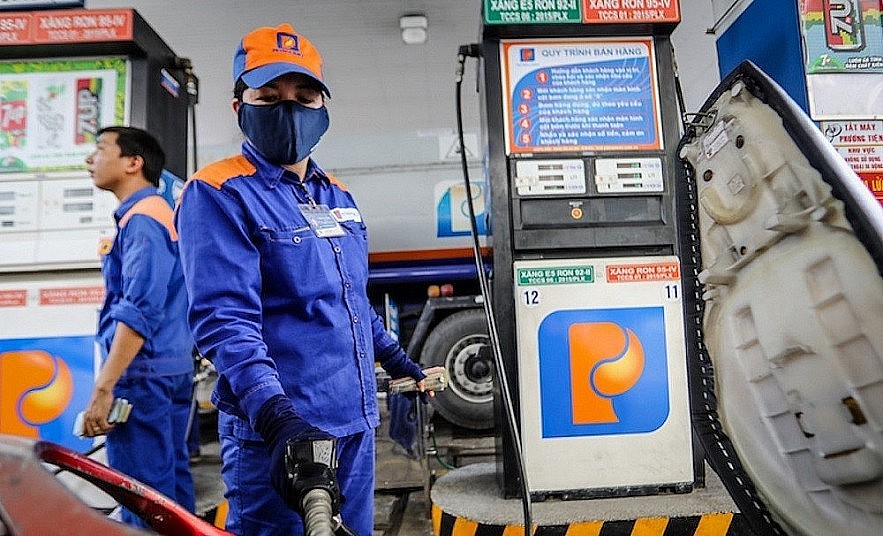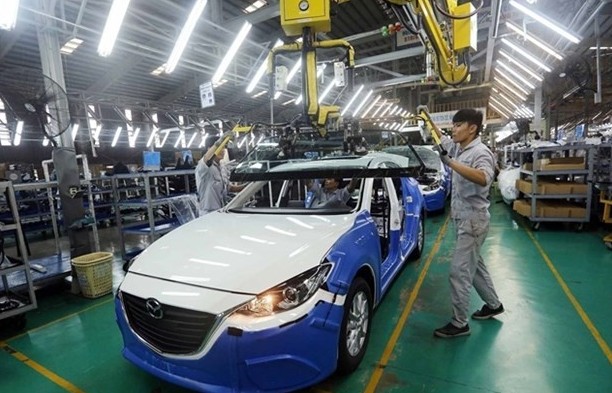 |
| Many countries levy an excise tax on gasoline. Photo: TL. |
Gasoline is always subject to excise tax because it is a non-renewable fuel
Before that, there were opinions about why levying excise tax on gasoline and whether it is appropriate because this is an essential commodity and input material for production. In this regard, the Ministry of Finance said that excise tax is an indirect tax, under the authority of the National Assembly.
Excise tax is levied on a number of goods and services that the State discourages consumption because it is harmful to health (tobacco, alcohol, beer,...), which need to be consumed sparingly (such as fossil fuels) or high-end, expensive goods and services that need income regulation (cars, planes, yachts, golf,...). Because gasoline is a non-renewable, fossil fuel that needs to be used sparingly, it is always subject to excise tax according to international practice.
According to the summary of international experience on excise tax policies, most countries in the world impose excise tax on gasoline, for example, in European countries: France (0,6629 EUR/liter for E10 gasoline and EUR 0.6829/liter for mineral gasoline); Germany (0.6545 EUR/liter for gasoline with sulfide content less than 10mg/kg, 0.6698 EUR/liter for gasoline with sulfide content above 10mg/kg); Netherlands (0.81314 EUR/liter); Italy (0.7284 EUR/liter); United Kingdom (0.5795 pounds/liter).
Countries in Asia: Korea (311 Won/liter of absolute tax and 15% tax rate), China (1.52 yuan/liter), Australia (AUD 0.442/liter).
Countries in the region: Cambodia (25% tax rate), Thailand (6.50 Thai baht / liter for mineral gasoline, 5.85 Thai baht / liter for 95 E10 gasoline, 5.2 Thai baht / liter for 95 E20 gasoline, 0.975 Thai baht/liter for 95 E85 gasoline, 3.2 Thai baht/liter for diesel oil), Singapore (S$0.41/liter), Laos (tax rate of 39%).
In Vietnam, the Law on excise tax has stipulated that gasoline is subject to excise tax since 1999. This regulation is consistent with the goal of collecting excise tax and in accordance with international practices. Thus, according to the Ministry of Finance, the excise tax on gasoline is in line with international practices.
As for petroleum, this is a fossil fuel that needs to be used sparingly and efficiently. The adjustment of petrol and oil prices must be flexible and close to the market, while the adjustment of excise tax is regulated by the National Assembly every 6 months.
Adjustment of preferential import tax is not appropriate
In the context of high gasoline prices, it is suggested that the preferential import tariff (MFN) should be adjusted for this item. Regarding preferential import tariff, Decree No. 57/2020/ND-CP dated May 25, 2020 of the Government stipulates that the preferential import tariff rate for gasoline is 20%; diesel, fuel, kerosene and jet fuel have the MFN import tariff rate of 7%.
Regarding special preferential import tariff, according to free trade agreements (FTAs) to which Vietnam is a member, gasoline products (including E5, E10) have a special preferential import tariff rate (FTA rate) under the ATIGA Agreement, the VKFTA Agreement is 8%, the VNEAEU Agreement is 8.8% - 8% and the ACFTA Agreement is 20%; The import tariff rate of diesel, fuel oil, kerosene and jet fuel is 7% under the FTA under the VNEAEU Agreement, 0% under the ATIGA Agreement and the VKFTA Agreement.
Currently, petroleum is imported mainly from the markets of ASEAN countries and Korea with the FTA import tariff rate of 8% for gasoline and 0% for oil. In the third quarter of 2021, the complicated development of the Covid-19 pandemic affected the supply chain and increased the cost of transporting goods to a very high level.
Therefore, although the amount of petroleum imported under the MFN tariff rate has tended to increase recently, it only accounts for about 6% of the country's total petroleum demand. When the pandemic is under control and supply chains are restored, the proportion of imported petrol and oil at the FTA tax rate is expected to increase rapidly as before.
From the above analysis, the Ministry of Finance believes that in the current conditions, the reduction of the MFN tariff rate for gasoline is unlikely to make the domestic gasoline price decrease because the proportion of imported petrol and oil through MFN rate accounts for a very low proportion. Along with that, the adjustment and reduction of the MFN tariff rate for petroleum products will narrow the room for negotiating new FTAs on the principle of reciprocity.



















































